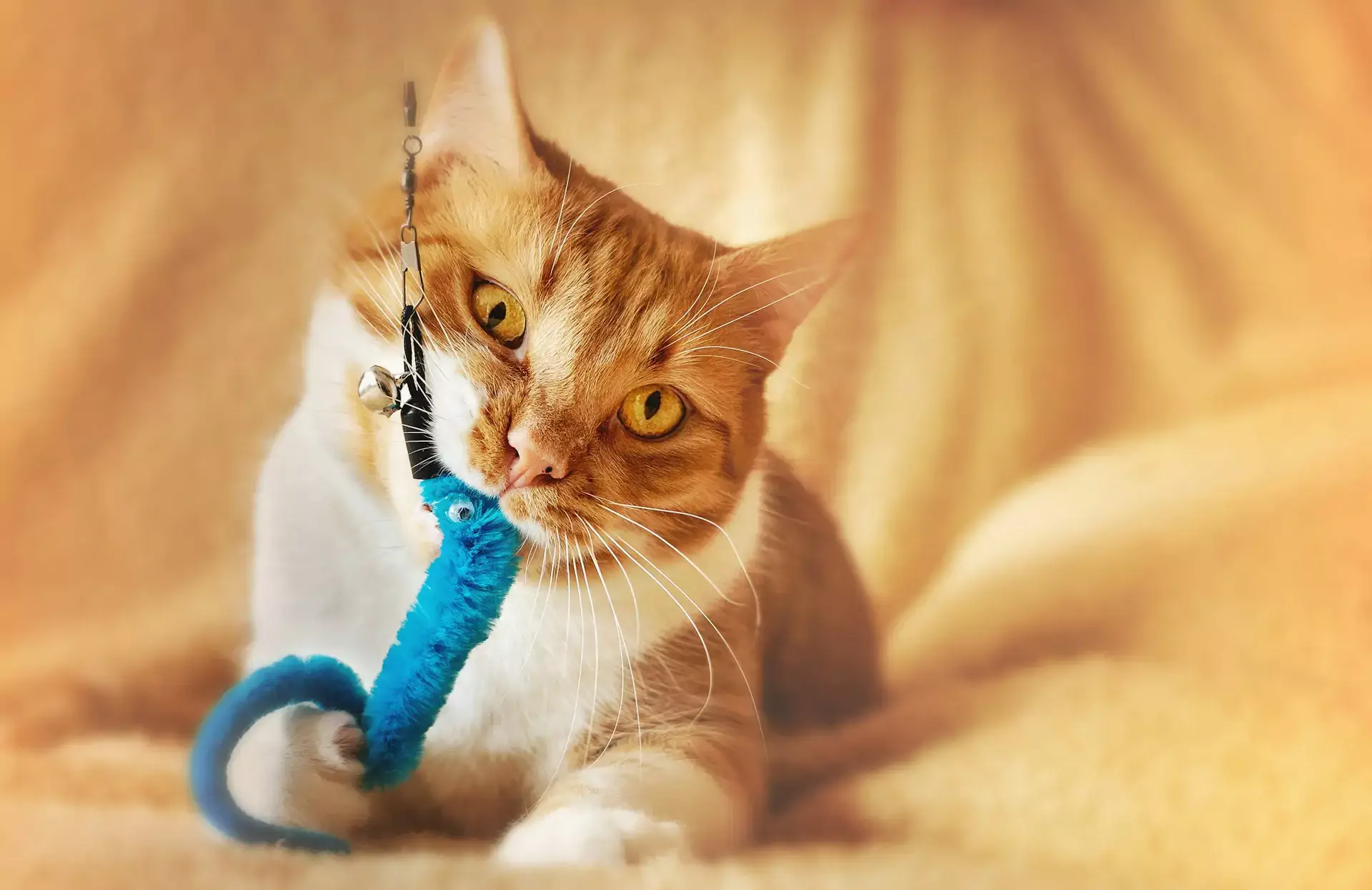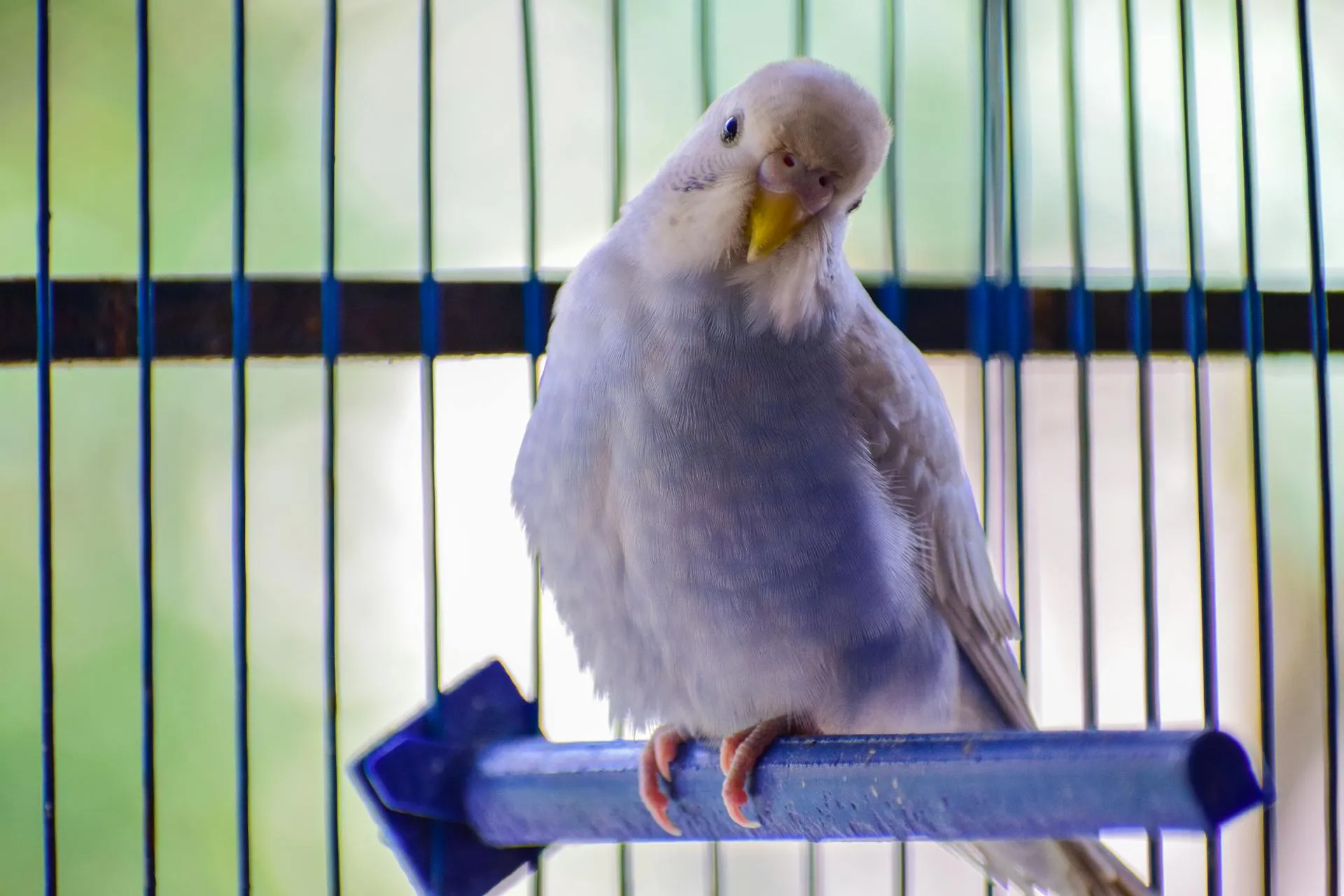Parrots are fascinating and intelligent creatures, and are known for their vibrant colors, ability to mimic human speech, and their lively personalities. If you’re considering adopting a parrot or already have one, it’s essential to understand their unique care requirements. At Galena Animal Medical Clinic in Middletown, DE, we’re here to provide expert guidance on parrot care, including an overview of different parrot species, their habitats, and helpful training tips.
In this blog, we will explore the different types of parrots, provide key care guidelines, and offer advice on how to train your feathered friend to be a well-adjusted companion.
Types of Parrots: A Quick Overview
Parrots come in various species, each with its own characteristics and care needs. Some are smaller and more suitable for apartment living, while others are larger and require more space. Let’s take a look at some of the most popular types of parrots:
1. Budgerigars (Budgies)
Also known as parakeets, budgies are small, colorful parrots that make excellent pets for first-time bird owners. They are social, playful, and can learn to mimic simple words or phrases. Budgies are typically around 7 inches in length and can live up to 10 years with proper care.
Care Tips for Budgies:
- Diet: A varied diet of seeds, fresh fruits, and vegetables is essential for budgies. Make sure to avoid feeding them avocado, chocolate, or caffeinated drinks.
- Habitat: Budgies need a spacious cage with plenty of perches, toys, and opportunities for exercise. They love to fly, so a large aviary or a spacious indoor space for flight is ideal.
- Training: Budgies are quick learners and can be trained to perform simple tricks and mimic speech. Begin by offering treats for positive behavior and speaking to them frequently to develop trust.
2. Cockatiels
Cockatiels are another small parrot species that are popular for their friendly personalities and ability to learn tunes and whistles. They are great companions and tend to bond closely with their owners. Cockatiels are known for their crest feathers, which they raise when excited or curious.
Care Tips for Cockatiels:
- Diet: A mix of pellets, fresh vegetables, and occasional seeds should be given to cockatiels. They enjoy leafy greens, apples, and carrots.
- Habitat: Cockatiels need a large cage with a variety of perches, as well as toys that encourage mental stimulation. Providing daily out-of-cage time to fly and explore is crucial.
- Training: Cockatiels are known for their ability to whistle and mimic sounds. Use repetition and positive reinforcement to train them to whistle tunes or talk.
3. African Grey Parrots
African Greys are highly intelligent parrots known for their exceptional ability to mimic human speech and solve problems. They are medium to large-sized parrots, typically reaching around 12-13 inches in length. African Greys require a lot of mental stimulation and social interaction to stay happy.
Care Tips for African Greys:
- Diet: Offer a balanced diet of pellets, vegetables, fruits, and nuts. They also enjoy a variety of seeds, but they should be offered in moderation.
- Habitat: African Greys require a large cage to accommodate their need for space and climbing. They should have plenty of toys and opportunities for social interaction and flight time.
- Training: African Greys are very trainable and can learn an extensive vocabulary. Consistent training sessions with rewards will help them learn new words and tricks.
4. Macaws
Macaws are large, stunning parrots with colorful plumage, often recognized for their striking blue and gold feathers. They are known for their friendly, social nature and can live for up to 50 years or more. Due to their size and energy levels, macaws require a lot of space and attention.
Care Tips for Macaws:
- Diet: A diet rich in nuts, fruits, and vegetables is essential for macaws. They need a high-calorie diet to fuel their active lifestyles.
- Habitat: Macaws need a large cage with plenty of space for movement and exercise. A large aviary is ideal for them, as they love to fly and explore.
- Training: Macaws are highly intelligent and can be trained to perform complex tricks and mimic human speech. They enjoy interactive training sessions and respond well to positive reinforcement.
General Parrot Care Tips
Regardless of the parrot species, there are a few essential care tips that apply to all parrots to ensure they live a long and healthy life:
1. Provide a Balanced Diet
Parrots need a varied and nutritious diet to stay healthy. While their diet should include seeds, fresh fruits, and vegetables, it’s important to provide parrot pellets as the base of their diet. Pellets are nutritionally complete and help ensure that your parrot gets the right balance of vitamins and minerals.
Always provide fresh water and change it daily. Avoid feeding parrots foods that are toxic to them, such as chocolate, avocado, or caffeine.
2. Create an Enriching Environment
Parrots are highly intelligent and require mental and physical stimulation to prevent boredom and behavioral problems. Provide them with a variety of toys, perches, and objects they can manipulate. Rotating toys regularly can help keep things interesting for your parrot.
Allow your parrot time outside of the cage each day for exercise and exploration. Make sure the space is safe and free from hazards. Bird lovers’ website Macaws & Amazon Parrots has an article about the importance of air quality for birds here. Avian Enrichment also has a piece on this, which you can read here.
3. Establish a Routine
Parrots thrive on routine, so try to establish consistent feeding, playtime, and sleep schedules. A regular routine helps reduce stress and makes your parrot feel secure in its environment.
4. Ensure Social Interaction
Parrots are social creatures and require regular interaction with their human family members. Spend time talking, playing, and bonding with your parrot daily. If you’re away from home frequently, consider getting a companion bird to keep your parrot company.
5. Provide Regular Veterinary Care
Just like any other pet, parrots need regular check-ups to ensure they remain healthy. Your veterinarian can check for signs of illness, keep track of your bird’s weight, and provide vaccinations if needed. Additionally, make sure to monitor your parrot for signs of illness, such as changes in eating habits, excessive feather loss, or unusual behavior.
Training Your Parrot
Training a parrot requires patience, consistency, and positive reinforcement. Here are some tips for effective parrot training:
- Start Early: Begin training your parrot as soon as possible to establish a bond and set clear boundaries. Young birds tend to learn faster than older ones, but all parrots can be trained with patience.
- Use Treats and Praise: Reward your parrot with treats or verbal praise when they perform desired behaviors. Positive reinforcement helps them associate good behavior with rewards.
- Be Consistent: Training takes time and repetition. Keep training sessions short but consistent, aiming for a few minutes each day.
Frequently Asked Questions
1. How long do parrots live?
The lifespan of a parrot depends on the species. Smaller parrots, like budgies, live around 5-10 years, while larger species like macaws can live up to 50 years or more.
2. Can parrots be kept in pairs?
Some species of parrots, like budgies and cockatiels, are more social and can be kept in pairs. However, it’s important to ensure they are compatible and introduce them carefully to prevent aggression.
3. Do parrots need daily interaction?
Yes, parrots are social animals that require daily interaction with their owners. They thrive on companionship and should not be left alone for long periods.
4. What should I do if my parrot is biting?
If your parrot is biting, it may be a sign of fear, territorial behavior, or a lack of proper training. Gently correct the behavior and avoid using force, as this can worsen the situation. Reward positive behaviors instead.
5. Can parrots talk?
Many parrot species, such as African Greys and Macaws, are capable of mimicking human speech. With proper training, some parrots can learn an impressive vocabulary.
Want to learn more about bird care? Click here for our blog on keeping Polly healthy and happy, or click here to dive into our previous blog on parrot care.
Contact Our Middletown, DE Vet Clinic
At Galena Animal Medical Clinic, your Middletown, DE, animal hospital, we understand the joy and responsibility that comes with owning a parrot. Whether you have a playful budgie or a majestic macaw, providing the right care and training is essential to ensuring a long, healthy life for your feathered friend. By offering a balanced diet, an enriching environment, and plenty of social interaction, you’ll have a happy, well-behaved parrot.
If you need more guidance on caring for your parrot or any other exotic pet, don’t hesitate to contact us. Our team of veterinarians is here to help!
Click here to visit our Service page and find out more about our clinic and the animals we treat. You can also go here to learn more about our Critical Care services, or go here to learn more about our Exotic Pet care offerings.
This blog is meant to be informational only. Always consult with your veterinarian for the right medical advice, diagnosis, or treatment plan for your pet and follow their advice.







!Social Media Icons